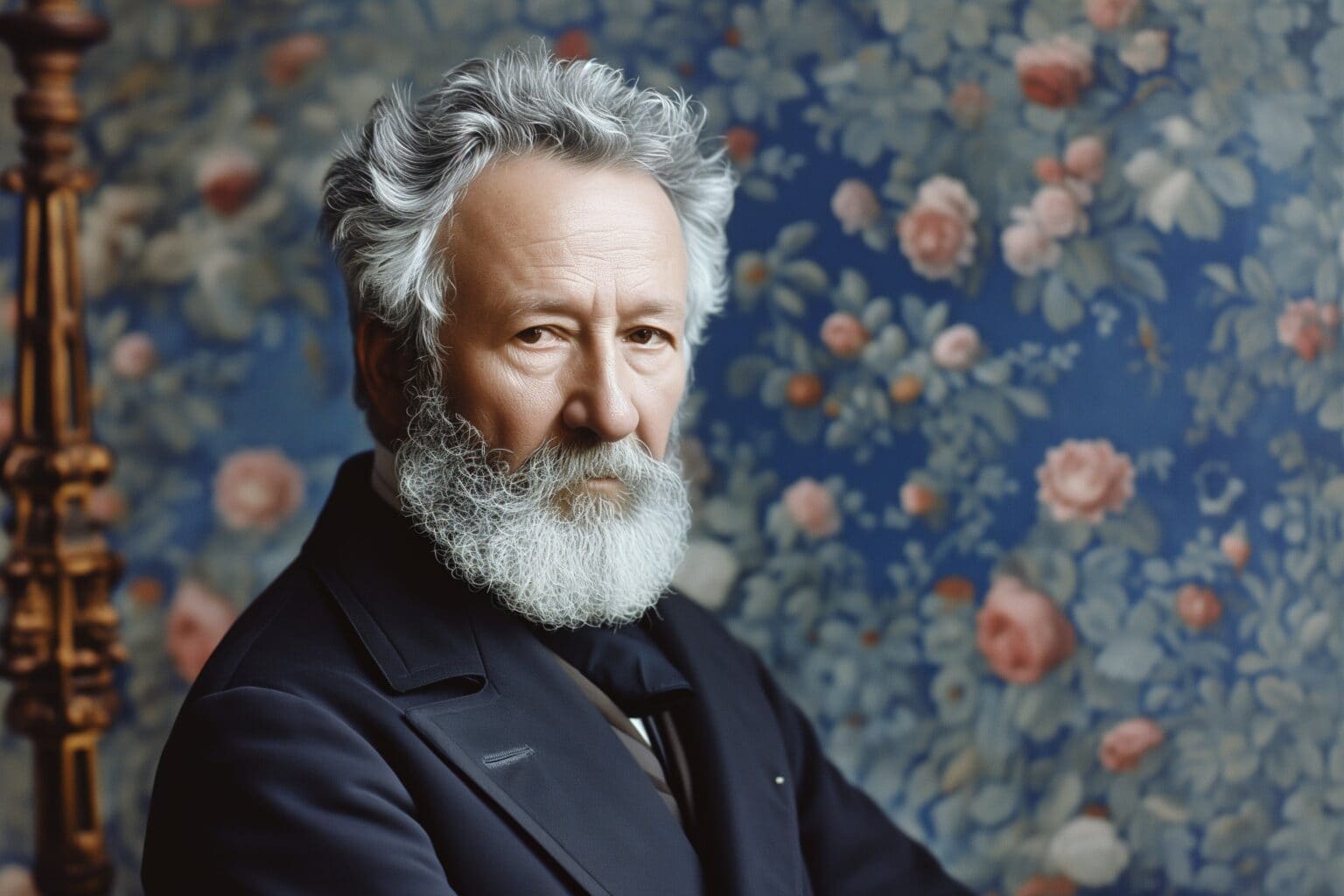Table of Contents

Jules Verne, a French novelist, poet, and playwright, is best known for his adventure novels and his profound influence on the literary genre of science fiction. His inspiration came from a variety of sources:
Scientific and Technological Advances
Verne lived during a period of rapid scientific and technological progress. The 19th century was a time of great discoveries in fields like geology, astronomy, and biology, as well as technological innovations like steam power, the electric telegraph, and early submarines. These developments fueled Verne’s imagination and provided a factual basis for many of his speculative adventures.
Previous Literature and Exploration Accounts
Verne was influenced by earlier works of adventure and exploration literature. He was known to have read widely, including the works of Edgar Allan Poe and Alexander von Humboldt. The real-life accounts of explorers and scientists also provided material for his novels.
Personal Interests and Hobbies
Verne’s own interests and hobbies played a significant role in his writing. He had a lifelong fascination with geography, which is evident in the detailed descriptions of various parts of the world in his novels. Additionally, his love for sailing and the sea is reflected in his maritime stories.
The Industrial Revolution
The Industrial Revolution was transforming European society during Verne’s lifetime, and this context of change and progress is evident in his work. He was intrigued by the potential of new technologies and often explored their implications in his stories.
Influence of Romanticism
While Verne is often seen as a pioneer of science fiction, his work also shows elements of the Romantic movement, which emphasized emotion, nature, and the sublime. This influence is seen in the awe and wonder his characters often feel when encountering the marvels of science and nature.
Collaboration with Pierre-Jules Hetzel
Verne’s publisher, Pierre-Jules Hetzel, played a significant role in shaping his novels. Hetzel not only provided encouragement and financial support but also gave feedback on Verne’s manuscripts, sometimes influencing the direction of his stories.
Who is Pierre-Jules Hetzel?
- Biography: Born on January 15, 1814, in Chartres, France, Hetzel started his career in publishing at an early age. He became one of the most important French publishers of the 19th century, known for his commitment to high-quality literature and for championing the cause of intellectual freedom.
- Publishing Jules Verne: Hetzel’s most famous association was with Jules Verne. He published many of Verne’s novels, including the famous “Voyages Extraordinaires” series. Hetzel not only recognized the commercial potential of Verne’s writing but also played a critical role in shaping the content of his novels. He often provided detailed feedback and suggestions for improvements, and his influence is seen in the balance of scientific fact and fiction in Verne’s works.
- Editorial Influence and Style: Hetzel was known for his editorial acumen. He had a keen sense for what would appeal to the reading public, and he often guided his authors in shaping their narratives to be both educational and entertaining. His publications were also noted for their high-quality illustrations and bindings, which made them attractive to a broad audience.
- Political Engagement: Hetzel was politically active, with strong democratic beliefs. He was involved in the political upheavals in France during the 1840s and faced exile due to his opposition to the regime of Napoleon III. His political views sometimes influenced the works he chose to publish.
- Other Notable Authors: Besides Jules Verne, Hetzel published works by several other prominent authors, including Victor Hugo, Honoré de Balzac, and Georges Sand. He was committed to promoting literature that was both socially conscious and accessible to a wide audience.
- Legacy: Hetzel’s contribution to French literature goes beyond his work with Jules Verne. He is remembered for his dedication to high literary and production standards, his support for authors, and his commitment to freedom of expression in publishing.
- Hetzel and Children’s Literature: He also made significant contributions to children’s literature, publishing beautifully illustrated and educational books for young readers. This included the famous “Magasin d’Éducation et de Récréation” (Magazine of Education and Recreation), a periodical that aimed to educate and entertain youth.
